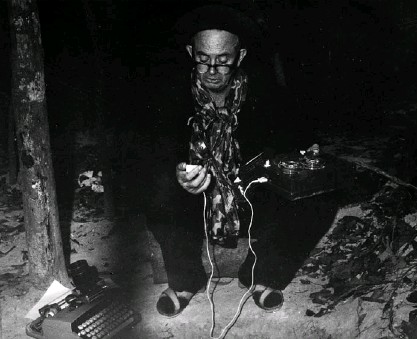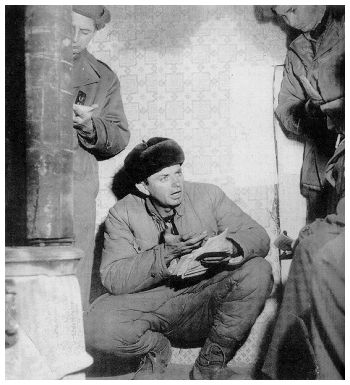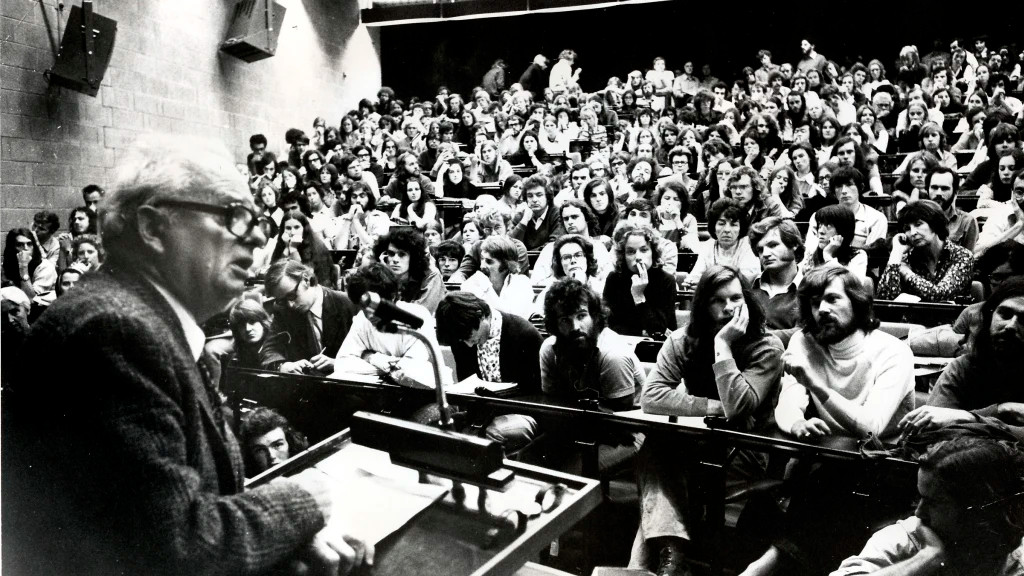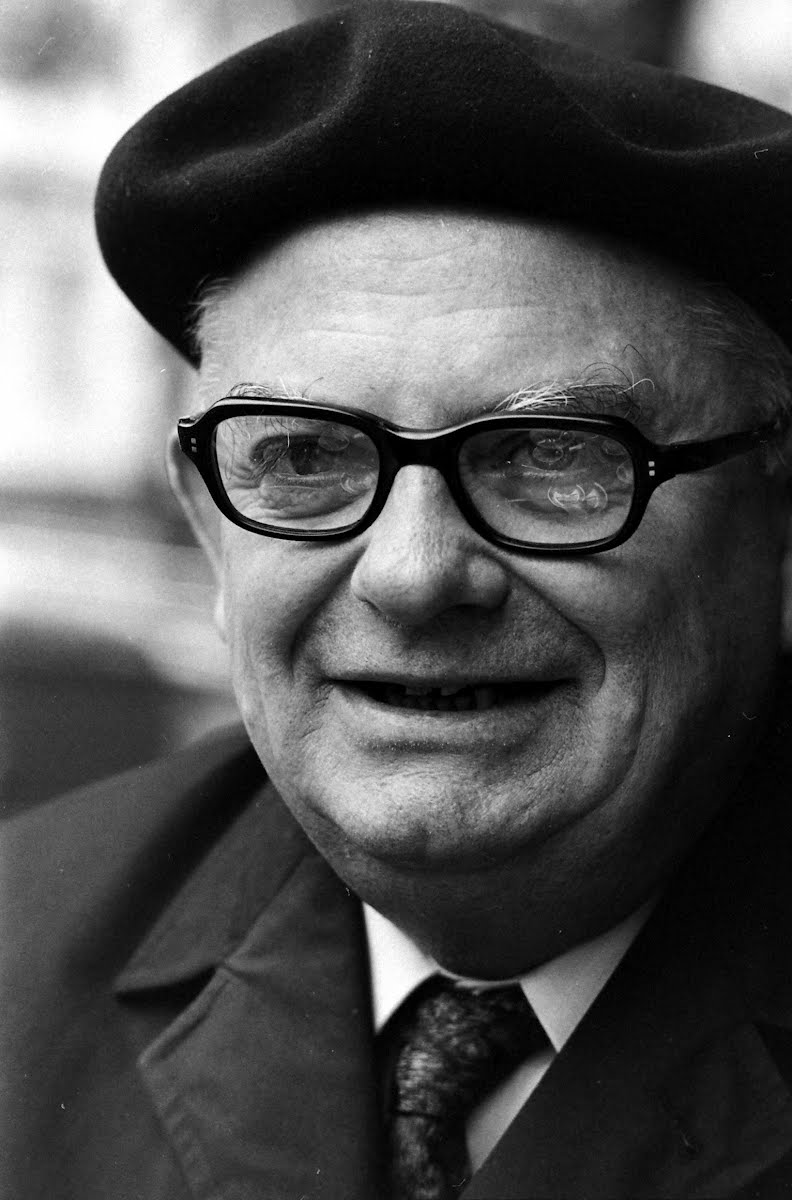

On the 75th anniversary of the first ever atomic weapon attacks, SBS World News Radio provided insight into the role of various Australians, including physicist Mark Oliphant, and journalist Wilfred Burchett.
According to Fair Observer, Burchett was the first to expose the devastating effects of radiation, something that was being denied by Allied forces at the time. Despite Allied attempts to censor the story, The Atomic Plague was published on the 5th September, 1945 in British newspaper The Daily Express. It has been referred to as "scoop of the century". According to John Pilger in his analysis Another Hiroshima is coming — unless we stop it now:
For this, his press accreditation was withdrawn, he was pilloried and smeared. His witness to the truth was never forgiven.
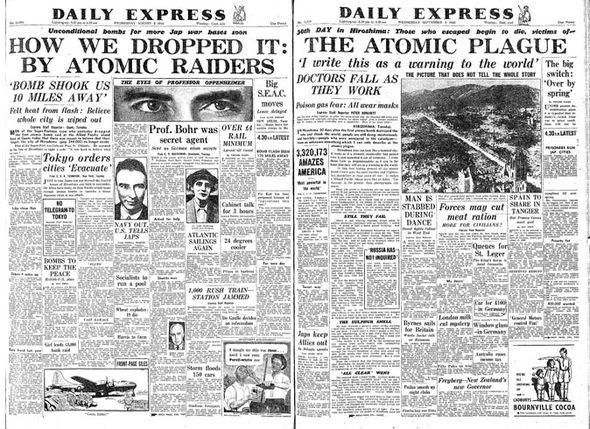
In a 1983 interview with Burchett in his series The Outsiders, Pilger says:
He has been the only western journalist to consistently report events from the other side.. in the Korean war, the Cold war, from China, the Soviet Union, Vietnam. He lived in the jungle with the Viet Cong, his friend was Ho Chi Minh.. An Australian foreign minister described him as "public enemy number one".
Australian film maker David Bradbury's 1981 film Public Enemy Number One portrays the life of Wilfred Burchett, and won the Golden Gate Award for Best Documentary, Best Documentary at the Sydney Film Festival, and an AFI (Australian Film Institute) award, but was never shown on Australian TV. In the documentary, Burchett describes how he first broke into journalism after travelling and living abroad in Germany before the outbreak of the second world war:
I became aware of what was going on in Germany, but the atmosphere in Australia was that "Germany is the most civilised country in Europe, Hitler is a man of peace.. and the stories of persecution of the Jews was propaganda." Well this was a bit more than I could stomach so I started writing letters to the newspapers describing the Germany that I had seen. Overnight I became a journalist, practically a foreign correspondent.
On his reporting of the Korean war:
I felt that there should be a voice from.. the other side, an experienced western journalist who could give the other side's point of view. I knew enough about the background to the war to know that the public had been to a great extent fooled as to the reasons to that war.. People being kidded along, conned if you like to go into a wider war to extend the war to China, once it had been extended to China extend to the Soviet Union.. If a wider war did take place then it was almost certain atomic weapons would be used. My experience in Hiroshima made me very sensitive to those sorts of situations.
On the use of biological warfare by the United States during the Korean war:
I am still absolutely convinced that the United States carried out large scale experiments in delivery systems of bacteriological warfare.
Though Burchett claimed in his memoir At the Barricades (1981) that he was "free of any built-in loyalties to governments, parties, or any organizations whatsoever", more recent evidence has come to light that perhaps this was not always the case. In an essay from the June 2008 issue of The Monthly entitled Agent of Influence: Reassessing Wilfred Burchett, Robert Manne claims evidence that during the Korean War Burchett was employed by the Chinese government. In a letter to his father from China in April 1951 Burchett writes that "I don't have to worry about finances here.. Luxury needs are not catered for but basic needs are. Most government employees live on that basis." Manne also points out that Hungarian journalist and author Timor Meray worked with Burchett during the Korean war, and alleged in a diary entry from October 1951, that Burchett recieved his pay not from the French newspaper Ce Soir but from the Chinese government.
Manne describes how during the early part of the Cold War:
Burchett moved to occupied Germany and travelled frequently to the countries of Eastern and Central Europe that the Soviet armed forces had liberated and occupied. He wrote two books, "Cold War in Germany" and "Peoples' Democracies". Both are the works of a committed communist. The former was short-listed for the Stalin Prize.. In the conclusion of Peoples' Democracies Burchett expressed the hope that in 20 years' time the whole world might share in the liberties already enjoyed by the citizens of Eastern and Central Europe.. Over Eastern Europe, Burchett always remained both stubborn and blind. In his autobiography, published in 1981, he still mistook the Stalinisation of Eastern Europe for liberation, and defended both the brutal Soviet suppression of the 1956 Hungarian Revolution and the execution of the revolution's leaders.
On pondering the motivation for Burchett's publication of overtly pro-Soviet works, the archival document trove leaked by Soviet dissident Vladimir Bukovsky sheds some light:
Central Committee approves July 1957 KGB request for one-off grant (20,000 roubles) and awards 3,000 rouble monthly allowance to WILFRED BURCHETT, Moscow correspondent of the National Guardian (USA) newspaper.
The document goes on to say:
Considering that Burchett, by his personal qualities and extensive links in political and journalistic circles represents unquestionable interest for our operations, we have taken a decision to engage Burchett in collaboration with the organs of the KGB.
The documentary Public Enemy Number One interviewed former Korean war Australian POW Keith Gwyther, who had contact with Burchett whilst he was a prisoner. He said of Burchett:
He wrote only their side of it.. it might be the truth but it's one side of the truth isn't it.
He also said:
If he's an Australian he should be working for Australia.. He's an advantage to a country to have somebody like him overseas.. he could be a valuable man he can get a lot of truthful information.
Indeed it seems Gwyther was not the only person to think this. A counterpunch article from 2018, by George Burchett (Wilfred's son) points to an article from Jack Anderson of the New York Post from 1976, who claims that in 1953 the CIA "tried to bribe the Communist world's most famous newsman, Wilfred Burchett, into defecting to the US". According to Anderson they were unsuccessful in this attempt.
With so many polarised and conflicting assessments of Wilfred Burchett's extraordinary life, I think it would be fitting to give George Burchett the final say. He concludes his article with the following about his father:
He was reviled by war mongers and Cold War warriors for telling the truth. About Hiroshima, about Korea and about Vietnam. All scenes of terrible crimes against humanity: atomic bombs, napalm, chemical defoliants, mass civilian casualties, untold damage to every aspect of life. And yes, I have no doubt about it, bacteriological warfare. That is, unleashing deadly bacteria, upon civilian populations. This is called evil. And that evil still lives among us. And it will live on, until it is exposed and eradicated. Like germs. And atomic weapons. And war in general.
-grasschip
